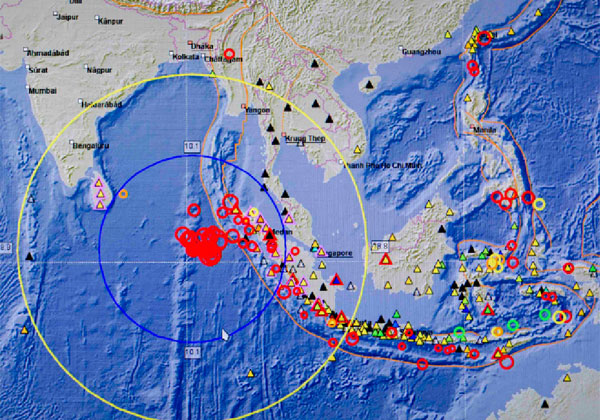
Abu Dhabi, April 12: The National Centre for Metrology and Seismology (NCMS) said the UAE was safe from the earthquake and tsunami in the Indian Ocean, but the UAE Foreign Ministry urged its citizens to take precautions and avoid travelling to the quake-hit countries except in situations of ultimate necessity.
Undersecretary of the Foreign Ministry Juma Mubarak Al Junaibi said the government is seriously following-up through its diplomatic missions in the South-East Asian countries the present conditions of Emirati citizens there. He also appealed to the citizens to register at the online ‘Tawajudee’ service through the ministry’s portal when travelling abroad.
The NCMS said the UAE has not been and will not be affected by the earthquake. It said there was no need to panic as the country and its coastlines were safe from the tsunami.
According to the centre, the 8.4-magnitude earthquake was recorded at 12:38pm local time northwest of Sumatra, in Indonesia.
“This kind of magnitude may cause tsunami in the area and this is the strongest earthquake to hit the region since the earthquake in 2004, causing 200,000 deaths,” the centre advisory said.
According to reports, most of the countries in south Asia, including Sri Lanka, Bangladesh, India and Pakistan have issued alerts after the earthquake report.





Comments
Add new comment